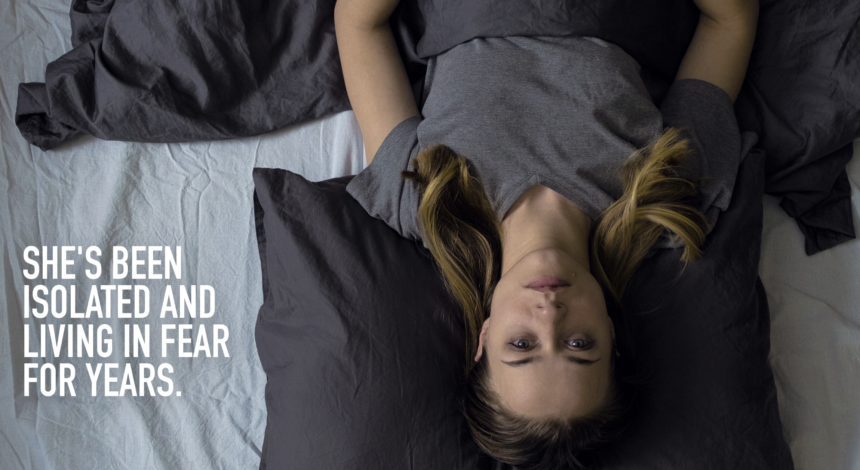COVID-19 stay-at-home orders increase the risk of domestic violence, experts warn

PHOENIX – Social distancing and self-isolation have become the primary tools to curb the continued spread of novel coronavirus, but those practices force many to remain in unsafe and abusive homes.
According to the Centers for Disease Control and Prevention, 1 in 4 women and 1 in 10 men have experienced sexual or physical violence by intimate partners. Additionally, at least 1 in 7 children have faced child abuse or neglect in the past year.
Tasha Menaker, co-CEO of the Arizona Coalition to End Sexual & Domestic Violence, said increased strain amid the COVID-19 outbreak could potentially increase these rates of violence.
“We know because of the pandemic … resources are limited,” Menaker said. “And so whenever there’s extra stress in the house, especially if it’s financial stress, and then on top of that isolation, there’s that risk of violence increasing.”
U.S. Sen. Kirsten Gillibrand, D-N.Y., and 23 other senators sent a letter to the federal Administration for Children and Families and the Office on Violence Against Women, seeking assurances that those in need would continue to get help.
“When people are required to stay home, abusive situations can become even worse,” Gillibrand said.
Experts say COVID-19, the respiratory disease caused by the novel coronavirus, has become yet another way for abusers to keep their victims close and exert control over them. For example, abusers may prevent victims from seeking medical attention or provide misinformation about the pandemic to frighten them, according to information posted by the National Domestic Violence Hotline about staying safe during the pandemic.
The hotline still is receiving its average of up to 2,000 contacts a day, said CEO Katie Ray-Jones, but more callers are citing coronavirus as among their concerns – some 1,765 from March 16 to March 31.
“We suspect that we may not see a surge in individuals reaching out until shelter-in-place protocols are lifted, and as people start returning to work or school and are apart from their abusive partners, it will be safe and private to reach out for support,” Ray-Jones said in an email.
The Arizona coalition saw a slight increase in calls in the first two months of the year compared with 2019, and officials anticipate the number will keep rising amid the stay-at-home orders, said Danielle Wright, victims services manager.
One Arizona domestic violence survivor who spoke with Cronkite News said she worries about victims who can no longer use their jobs to escape violence.
“There’s probably a lot of women out there that maybe their opportunity to get away from the abuser was to work in the office, but now they’re forced to be living at home,” said the survivor, who asked to remain anonymous over fears that her former abuser might hear her speaking out.
She previously turned to the coalition for help.
The woman had lived with her abuser for nine months, she said, enduring both physical and verbal abuse. After breaking her foot in a motorcycle accident, the woman was forced to stay home.
“It just seemed like every day was a nightmare,” she said, adding that her partner would dispose of her crutches, knee scooter and prescription medication to torment her.
She worries about people living in abusive situations who not only have to stay home but also may be infected with COVID-19.
“They might not feel safe following the doctor’s orders while living with the perpetrator at home, … and so that may affect someone from being totally recovered,” the woman said.
“The perpetrator knows that this is a time of vulnerability for the person that’s sick, and they will do what they can to make sure that that person doesn’t get better.”
After escaping her abusive relationship, she leaned on support groups, survivors with similar stories and emotional support from mentors.
Menaker said that despite the increase in hotline calls, the Arizona domestic violence coalition has seen fewer clients coming into resource centers and attending programs. She noted, however, that domestic violence centers throughout the state are still able to help victims with court cases, shelter or medical needs.
“It can be a little bit overwhelming because things are always changing, but then at the same time, I feel like I’ve seen people really come together … and support each other more than ever,” Menaker said.
The National Domestic Violence Hotline has teamed up with the No More project to launch a #listeningfromhome campaign, aimed at raising awareness for the victims of domestic abuse trapped at home due to novel coronavirus. It educates the public on warning signs, and encourages people to seek help if they observe incidents of abuse.